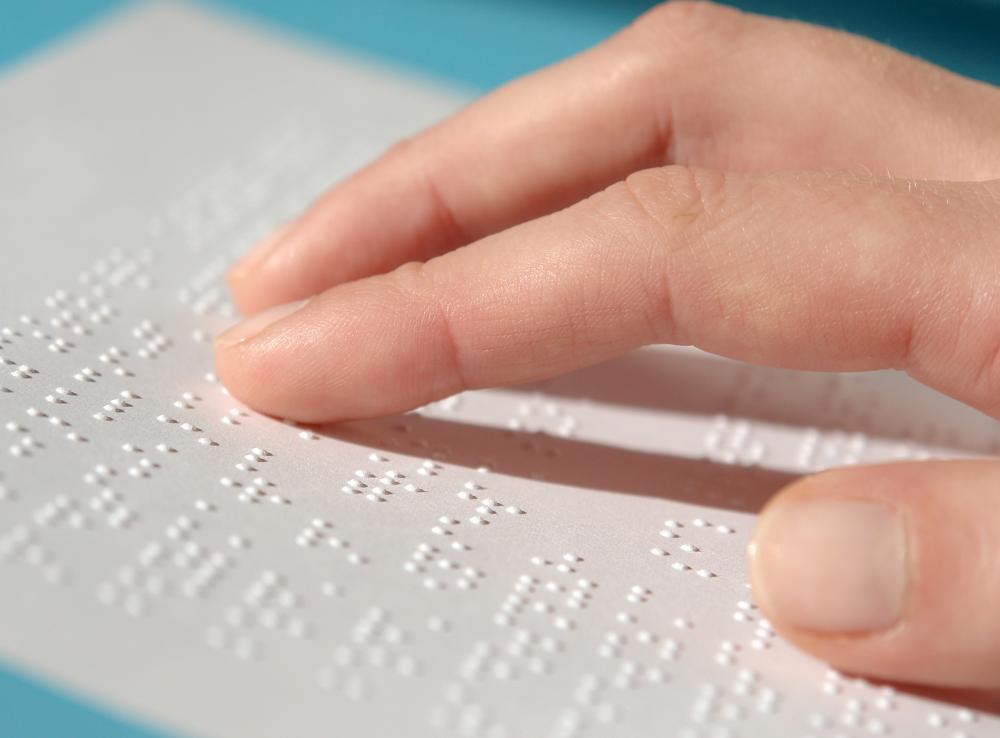At WiseGEEK, we're committed to delivering accurate, trustworthy information. Our expert-authored content is rigorously fact-checked and sourced from credible authorities. Discover how we uphold the highest standards in providing you with reliable knowledge.
What Should I Consider When Buying a Hearing Impaired Telephone?
When buying a hearing impaired telephone, buyers should consider both the level of hearing loss the user has, and other disabilities that could have an impact on how the phone is used. A range of phones and phone accessories are available to make using the phone easier for those with a hearing impairment.
For mild to moderate hearing loss, an amplified hearing impaired telephone may be a good choice. Most standard telephones have some degree of volume control, allowing the user to make the speaker in the handset louder, but an amplified hearing impaired telephone allows the user to adjust the volume to a much higher level. Many amplified phones also let the user adjust the ringer to be much louder, and may have a light that flashes to show when the phone is ringing. Portable amplifiers are also available, which can be moved from phone to phone as needed.

When buying an amplified hearing impaired telephone, consider who will be using the phone. If people other than the hearing impaired will be using the phone regularly, users may want to be able to control the volume easily. Users with hearing aids may want to look for a phone that works with a hearing aid device; many amplified phones can transmit directly to the telecoil found in some hearing aids.

People who are severely hard of hearing or completely deaf may choose to use a hearing impaired telephone called a teletypewriter telephone (TTY), or a telecommunications device for the deaf (TDD). A TTY phone attaches to a normal phone jack or special computer modem and allows the user to type his or her message, which is transmitted to another TTY device. Responses are then displayed as text on a screen on the phone. This type of phone has a flashing light to let the user know that there is an incoming call.

Also available are relay services that allow TTY phones to be used to connect with a standard telephone. The relay service mediates between the hearing impaired telephone and the standard phone by utilizing a communication assistant that reads out the text typed by the person using the TTY phone. The communication assistant then types what is said by a speaking person to be read by the hearing impaired person via the TTY phone screen. Related audio-to-text services include voice carry over (VCO), for people who can speak but need the responses from the other person typed, and hearing carry over (HCO) for those cannot speak, but who can hear the response.

Similar to VCO is the CapTel or captioned telephone. A CapTel phone operates like a standard telephone, but provides a text screen that displays what the caller says. Unlike VCO, which provides the text of the speaker only, CapTel provides both audio and text for calls.
Consider other disabilities the person using the TTY phone may have before purchasing a phone. People who have large hands or difficulty typing might find a hearing impaired telephone with a small keyboard hard to use. Users with sight difficulties may need a large screen on which to read the text response. TTY phones are also available for those who are deaf and blind, but who can read Braille. TeleBraille phones, also called Braillephones, have Braille keys for typing and a refreshable Braille readout instead of a screen.
AS FEATURED ON:
AS FEATURED ON:















Discuss this Article
Post your comments